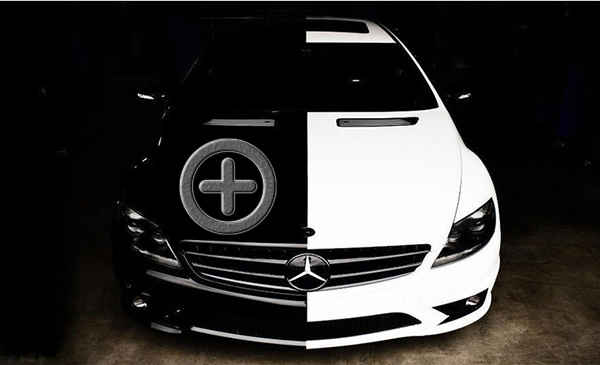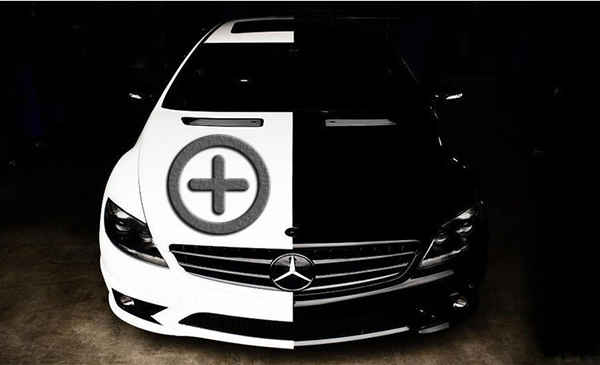Should I get a black or white car?
When deciding between a black or white car, there are several factors to consider, including aesthetics, practicality, maintenance, and even resale value.

Below, we will explore the reasons to choose and avoid each color, providing examples, interesting facts, and some recent trends in the automotive industry.
Reasons to Choose a Black Car

- Aesthetic Appeal
Sophisticated and Luxurious Look: Black cars often exude a sense of luxury and sophistication. They can make a statement and are associated with high-end vehicles.
Timeless Elegance: Black is a classic color that never goes out of style. It complements almost any car design, giving it a sleek and polished appearance.
- Resale Value
Higher Demand: Black cars tend to have a strong resale value as they are always in demand due to their timeless appeal.
- Hides Minor Scratches
Less Noticeable Imperfections: Minor scratches and swirls are less noticeable on black cars compared to lighter colors, which can maintain the car’s pristine appearance for longer.
Reasons Not to Choose a Black Car

- Heat Absorption
Higher Temperatures: Black cars absorb more heat from the sun, making the interior significantly hotter in sunny climates. This can lead to discomfort and increased use of air conditioning, which can affect fuel efficiency.
- Maintenance
Shows Dirt and Dust: Black cars show dirt, dust, and water spots more prominently, requiring more frequent washing and maintenance to keep them looking clean.
- Visibility and Safety
Lower Visibility at Night: Black cars can be harder to see at night, increasing the risk of accidents. They may require better lighting or additional safety features to mitigate this risk.
Reasons to Choose a White Car

- Cooler Temperatures
Reflects Sunlight: White cars reflect more sunlight, keeping the interior cooler and reducing the need for air conditioning, which can be beneficial in hot climates.
- Visibility and Safety
Higher Visibility: White cars are more visible at night and in low-light conditions, which can enhance safety on the road.
- Maintenance
Less Noticeable Dirt: While white cars do show dirt, it is usually less noticeable than on darker colors. This can mean less frequent washing and upkeep.
Reasons Not to Choose a White Car

- Aesthetic Issues
Plain Appearance: Some people find white cars to be less visually striking or too plain compared to more vibrant colors like black, red, or blue.
- Stains and Discoloration
Prone to Stains: White cars can easily show stains from road tar, bird droppings, and other contaminants. These stains can be harder to remove and may require special cleaning products.
- Resale Value
Subject to Market Trends: The resale value of white cars can fluctuate based on market trends and consumer preferences. While currently popular, this can change over time.
Examples and Interesting Facts

- Examples of Iconic Black Cars
Mercedes-Benz S-Class: Known for its luxury and elegance, the S-Class in black is a symbol of status and sophistication.
Tesla Model S: Often seen in black, the Model S combines cutting-edge technology with a sleek and modern design.
- Examples of Iconic White Cars
Porsche 911: The classic sports car looks stunning in white, highlighting its sleek lines and sporty design.
Toyota Prius: White is a popular color for the Prius, symbolizing its clean and eco-friendly image.
Interesting Facts

Color Popularity:
According to recent studies, white has been the most popular car color globally for several years, followed closely by black and silver.
Heat Studies:
Research from the Berkeley Lab’s Environmental Energy Technologies Division found that white or light-colored cars can be significantly cooler than black cars, sometimes by as much as 25 degrees Fahrenheit.
Safety Statistics:
Studies have shown that white cars are statistically less likely to be involved in accidents compared to darker-colored vehicles due to their higher visibility.
Recent News and Trends

Sustainability and Color Choice
- Eco-Friendly Paints:
Manufacturers are increasingly offering eco-friendly paint options that reduce environmental impact. These paints are available in various colors, including black and white.
- Solar Reflective Paints:
Some companies are developing solar reflective paints that help reduce the heat absorption in darker-colored cars, potentially making black cars more practical in hot climates.
Consumer Preferences
- Shift in Trends:
While white remains popular, there is a growing trend towards bolder colors, including metallics and pearlescent finishes. This trend could influence future resale values and color preferences.

Choosing between a black or white car ultimately depends on personal preferences, lifestyle, and practical considerations. Black cars offer a luxurious and timeless appeal but require more maintenance and can be hotter in sunny climates. White cars provide better visibility, cooler interiors, and are easier to maintain but may lack the visual impact some drivers seek.
By weighing the pros and cons, and considering recent trends and facts, you can make an informed decision that best suits your needs and preferences.












